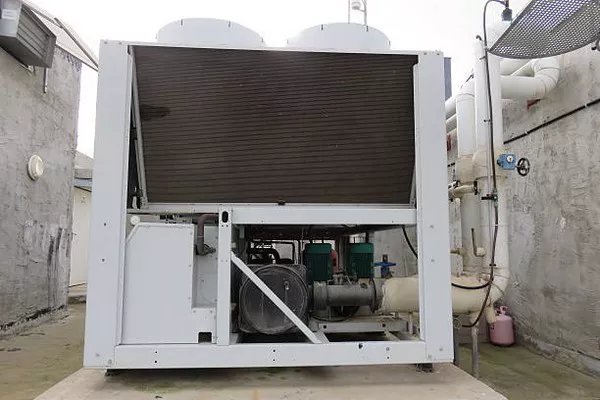When it comes to ensuring uninterrupted power supply during unexpected outages, a whole home generator can be a lifesaver. Whether you’re looking to safeguard your family from power disruptions or protect valuable assets, investing in a whole home generator is a wise decision. However, one crucial factor that often deters homeowners from making this investment is the cost. In this article, we’ll delve into the intricacies of whole home generator costs, providing you with a comprehensive understanding of what you can expect to spend and the factors that influence the price.
The Importance of Whole Home Generators
Before we dive into the costs, it’s essential to recognize the significance of whole home generators. These devices provide an automatic and seamless power backup solution during unexpected power outages, which can be caused by various factors, including severe weather, equipment failure, or accidents. They ensure that your household continues to operate as if nothing happened, preserving your comfort, security, and peace of mind.
Factors Affecting the Cost
The cost of a whole home generator can vary significantly depending on various factors. Understanding these variables is key to getting an accurate estimate for your specific needs. Here are the primary factors influencing the cost:
Generator Size and Capacity: The size and capacity of a generator are the most significant cost determinants. Larger generators with higher wattage capacity will naturally cost more than smaller ones. To determine the right size for your home, consider your essential appliances and systems that need power during an outage.
Fuel Type: Whole home generators typically run on natural gas, propane, or diesel fuel. The cost of the generator will vary based on the fuel type you choose. Natural gas generators are often the most cost-effective option, as natural gas is generally less expensive than other fuels.
Installation and Permit Costs: Installing a whole home generator requires professional installation and often involves obtaining permits. Installation costs can fluctuate based on the complexity of your electrical system and local regulations.
Brand and Quality: High-quality generator brands may come with a higher upfront cost but offer reliability and durability. Investing in a trusted brand can be a wise choice in the long run, as it can reduce maintenance and repair expenses.
Transfer Switch: The transfer switch is a crucial component that connects the generator to your home’s electrical system. Automatic transfer switches tend to be more expensive than manual switches, but they provide seamless power transitions during outages.
Location and Accessibility: The placement of the generator and the accessibility for installation can affect costs. A generator that is easy to install will be less expensive to set up than one that requires significant alterations to your property.
Additional Features and Accessories: Some generators come with extra features like remote monitoring, noise reduction technology, or enhanced weatherproofing. These features can increase the cost but may enhance the convenience and performance of the generator.
Cost Ranges
Now that we’ve explored the factors influencing the cost of a whole home generator, let’s look at the cost ranges you can expect to encounter:
Small to Mid-Size Homes: For homes with minimal power requirements, a smaller generator (around 8-20 kW) can cost between $3,000 and $6,000. Keep in mind that this doesn’t include installation costs or additional features.
Average-Sized Homes: Most homeowners with average-sized homes (around 2,500-4,000 square feet) require generators in the range of 20-40 kW. The cost for these systems typically falls between $6,000 and $15,000, excluding installation and additional features.
Larger Homes: If you have a larger home with higher power demands, you may need a generator with a capacity of 40 kW or more. These generators can range from $12,000 to $30,000 or more, not including installation and extras.
Installation Costs
The installation of a whole home generator is a critical component of the overall cost. The complexity of the installation and any necessary electrical work can significantly impact the final price. On average, installation costs can range from $2,000 to $10,000 or more. It’s crucial to hire a licensed and experienced electrician or installer to ensure the job is done correctly and safely.
Permit Costs
Permit costs can vary by location and may add another $100 to $500 to the overall expense. Always check with your local authorities and consult with your chosen installer to determine the exact permitting requirements and associated costs for your area.
Maintenance and Operational Costs
In addition to the initial investment, it’s essential to consider ongoing operational and maintenance costs. Maintenance is crucial to ensure the longevity and reliability of your generator. Typical maintenance costs can range from $100 to $500 per year, depending on the size and type of generator.
Conclusion
Investing in a whole home generator is a smart decision for homeowners looking to protect their families and properties from power outages. While the initial costs can seem substantial, the long-term benefits in terms of security, convenience, and peace of mind make it a worthwhile investment. By carefully considering the factors that influence costs, choosing the right generator size, and working with a professional installer, you can ensure a reliable power backup system that suits your needs and budget.
When considering a whole home generator, it’s essential to receive multiple quotes, assess your specific requirements, and weigh the costs against the value it provides. While the upfront expenses may seem significant, the reliability and peace of mind that a whole home generator offers are often considered priceless by homeowners.

